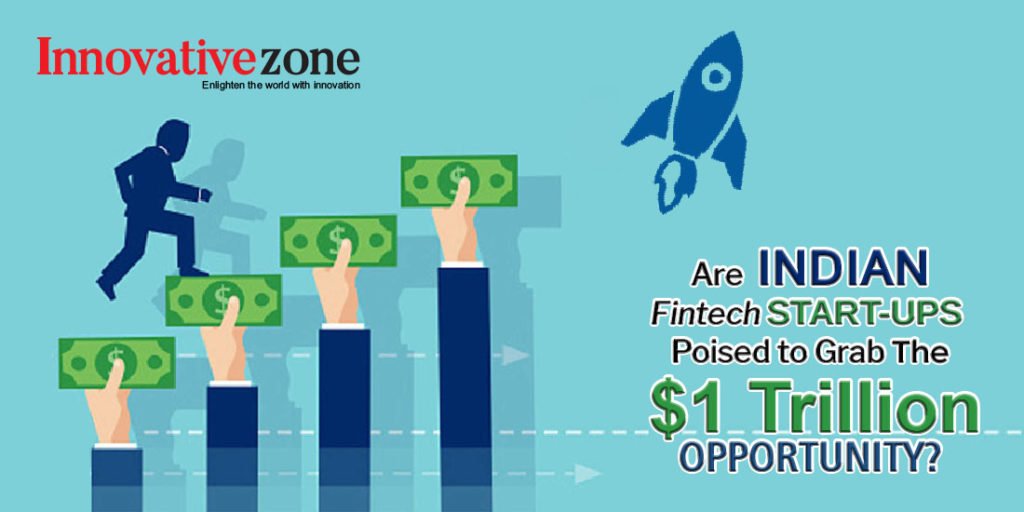Are Indian Fintech Startups Poised to Grab The $1 Trillion Opportunity?
Last year, Fintech Startups got a big amount of funding. And early sings 2020 has pointed out that this tread is likely to continue. According to yoursotry.com, in the 2019 funding report, fintech and finical industries shown 28.6% of the total $ 11.1 billion raised. In India, there are some technology-led foundation blocks like UPI (Unified Payment Interface), Aadhaar and BHIM, Shahamati (The body for account aggregators). Still, a lot of tech coming up as a framework for loan service providers.
Overall, I would say that these developments are indicating large market possibilities for start-ups in the finical service ecosystem. As per Yoursoty.com, Sharad Sharm the cofounder of iSPIRT believes that the market is very big, and some reports have shown that it is a one trillion dollars opportunity.
A sound investment field
There are so many fintech startups ecosystem in India like Paytm, PhonePe, Google Pay, Policy Bazaar, MobiKwik, and many others. These start-ups are offering services in a different segment of the finical industries. The world’s most messaging app WhatsApp is about to launch payment service in India, it indicates that the upcoming time would be a humongous market. An enthusiastic growth has also been famous entrepreneurs leading their magic touch to the industry. For instance, Sachin Bansal the co-founder of Flipkart has made a big move in the digital banking sector by getting NBFCs to offer rural credit as well as to make strides in the insurance area. Lately, Sachin has got Chaitanya India Fin Credit and applied for a banking license. The counterpart of Flipkart Binny Bansal also has invested in this area.
Reimagining finance for the Underbanked
Working alongside digital age, Tech-backed Ventures are additional well-known financial institutions such as banks and NBFCs, these are giving so much effort to get a foothold in the area that is showing in unprecedented ways of dealing in finance. For instance, banks or other finance companies usually offer us credit based on our assets and possess, but now things have changed, you can take a loan by changing your financial history. In such kind of scenario, a borrower doesn’t offer a grantee in term of some physical asset to secure a loan, however, instead, request the account aggregator to provide their financial past detail to institutions which can then evaluate the case and lend credit. According to yoursotry.com, Vijay Shekhar Sharma (Paytm Founder) said that “India will be the first country in the world where individuals will be empowered to use their own data.”
A big opportunity that hasn’t got tapped into is the huge unbanked rural pool, mostly it has been avoided so fast by older traditional participants who reached after the middle class lived.
From yoursotory.com, BIS paper has shown earlier, there are 191 million individuals in India who didn’t have bank accounts, I.e., people who don’t have a bank account, in 2018. Of this, Women earned a very large 109 million.
“seeing in such kind of scenario, it shows that the fintech industry will have to re-engineer themselves both from a tech perspective and way they approach the markets. It would entail upcoming with a product which goes far away just digital wallets.”
Today, tons of start-ups have introduced featured called a digital wallet. Believe or not, it is a small consideration we have been using, to improve good consideration, Fintech startups require other interesting products so that customers can be on board all the time. For instance, last year, PhonePe introduced a wealth management business. Old institutions NBFCs, banks, and other financial industries have to reconsider their way of doing business.
Technology effects
Today, almost every fintech start-up is using AI to analyze user data and profiles and create marketable products. From Yourstory.com, 3one4 capital’s Siddharth said, “The most attractive thing about fintech startups is the one has the ability to marry the best of technology with the scalability of Ecommerce.”
Another factor, Jio has also given a huge impact on fintech startups. In 2016, the Reliance group launched Jio. Because of the chipset price, smartphone numbers have been increased. Today most of the Indians are making payments through mobile wallets. Jio also has a digital wallet and media has indicated that soon, the company will enter in mutual funds space.
Seeing these all exciting developments, we are sure that the future would so much different. And experts are more assured of the market and all the potential it grasps.


